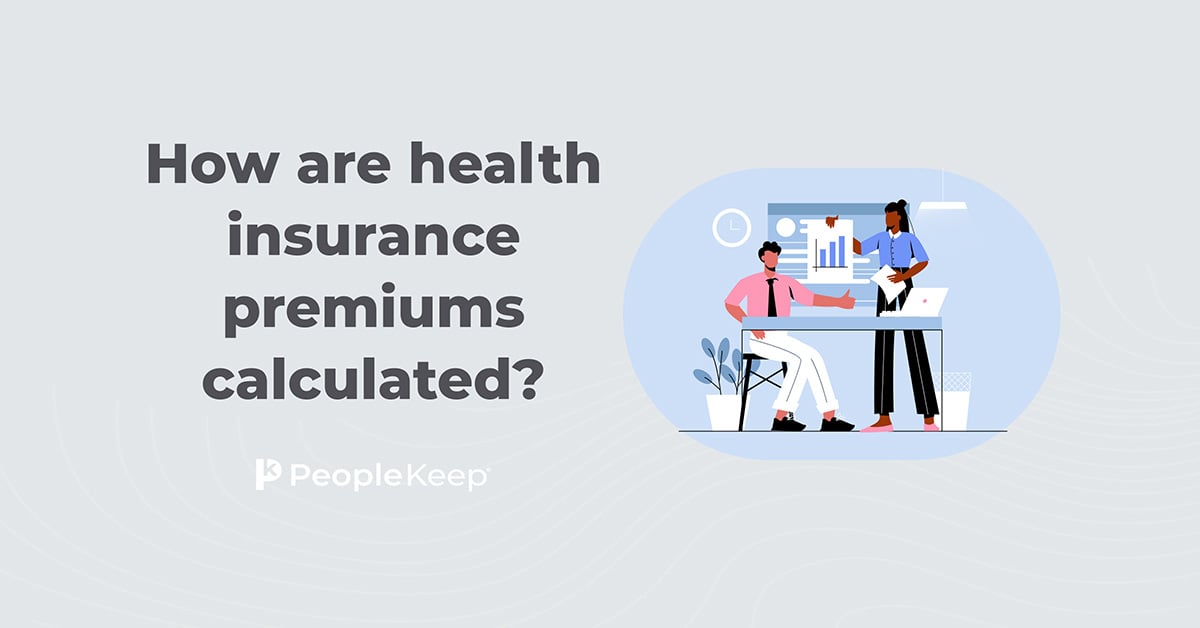Health insurance stipends pros and cons
By Elizabeth Walker on March 27, 2023 at 9:27 AM
Many small employers who can't afford to offer formal health benefits may decide to give employees a taxable stipend to pay for healthcare expenses. While this option is easy to administer and can save employers time, the value of a stipend is reduced because itis considered part of employees' income—not a separate benefit.
This means that stipends have payroll and income tax implications that tax-free health benefits don't have. Moreover, employers can't require employees to prove they purchased a health insurance plan with their stipend money.
So are health insurance stipends a worthwhile option after all? In this article, we'll examine the pros and cons of taxable health insurance stipends, outline best practices, and discuss a tax-free way to offer your employees health insurance.
Learn more about how employee stipends work with our complete guide
How does a health insurance stipend work?
With a health insurance stipend, employees receive a fixed, taxable allowance to purchase an individual health plan and other out-of-pocket medical costs.
This allows you to give them the option of choosing an insurance policy of their choice without having to foot the bill for traditional group health insurance for all your employees, which can be more cost-effective for you considering rising healthcare costs.
Employer contributions are paid directly on an employee's paycheck like extra wages. You can offer a stipend as a monthly allowance through an expense card or a lifestyle spending account (LSA), or you can reimburse your employees for their health expenses.
Pros of a health insurance stipend
A stipend can offer some unique advantages. Among other benefits, employees will be able to choose from multiple health coverage options. They can compare and find the policy that best suits their needs, whether on a public exchange, like the health insurance marketplace, or a private exchange.
A health stipend also allows you to provide a benefit to international workers and 1099 contractors without affecting their employment status. Since a stipend isn't a formal health benefit, you can fully customize your stipend amounts to your organization's needs without any contribution minimums or limits.
A health insurance stipend could be a good idea for your business if:
- You can't afford to offer formal group health coverage.
- You want to avoid any compliance or regulation considerations with the IRS, HIPAA, or ERISA.
- You want something simple and easy to manage through automatic payroll additions.
- You have employees who receive advance premium tax credits (APTC) for individual health insurance premiums.
Cons of a health insurance stipend
With a stipend, there's no requirement that employees need to use the money to purchase health insurance. You may trust that your employees will use the stipends for health insurance and other medical expenses, but you can't guarantee they will.
In addition, if employees view the stipend as part of their wages, and you later decide to remove it, they might see it as a pay cut. Doing this could lower morale.
Other cons of a health insurance stipend include the following:
- Employers must pay payroll tax on reimbursements totaling 7.65%.
- (6.2% for social security and 1.45% for Medicare)
- Employees must pay taxes on the amounts received as income, usually between 20% to 40%.
- You can't require employees to submit proof of insurance, so it may not accomplish your intended objective of offering a health benefit.
- Because they’re taxable, many prospective employees may not see a stipend as an actual “benefit,” which could turn off the very people you hoped to attract.
Best practices for health insurance stipends
Stipends are legal when you follow the tax laws in your area. In many cases, they are typically used as an extra perk alongside proper employee salaries.
As a general rule, you should never use stipends as a way to exempt an employee, either part-time or full-time, from a salaried position.
When offering employees a health insurance stipend, here are three best practices to consider:
- Don't ask employees to show proof of health insurance.
- Direct payment or direct reimbursement for health insurance is considered an employer payment plan, and the business could face penalties for asking for verification.
- Treat the stipend as taxable income.
- Continuously communicate to employees that the stipend is a health benefit. This way, employees will be more likely to use it for medical reasons and not simply consider it as extra wages.
While a stipend isn't a formal health insurance policy, there are ways to ensure that your employees use their allowance as you intend.
With an employee benefits administration platform such as PeopleKeep, you can manage your stipend and set which expenses are eligible for reimbursement. That way, your employees will be more likely to only use their allowances on healthcare costs.
Stipends vs. health reimbursement arrangements (HRAs)
As mentioned, stipends are subject to payroll and income taxes, meaning employer dollars don't stretch as much. Thankfully there's a tax-free alternative to stipends.
A health reimbursement arrangement (HRA)is an IRS-approved, employer-funded health benefit meant to reimburse employees, tax-free, for qualifying out-of-pocket medical expenses and individual health insurance premiums.
Many business owners prefer HRAs over healthcare stipends for their tax advantages. You determine how much tax-free allowance you want to offer your employees each month. Once you set an allowance, your reimbursement amounts can't exceed it.
Employees choose the insurance and services they want and purchase them with their own money. They then submit proof of a purchased eligible expense, usually in the form of a receipt, and are reimbursed by the employer after the expense is verified. Unlike health savings accounts (HSAs), unused HRA funds stay with you if an employee leaves your organization.
Other pros of an HRA are:
- They have tax benefits. Reimbursements are free of payroll taxes for both employer and employee. They're also free of income taxes as long as the employee has minimum essential coverage (MEC).
- They require employees to use the money for medical expenses. Employees can only use the funds for eligible expenses under IRS Publication 502. Employers can design plans that restrict reimbursable expenses further.
- They're easy to implement. Companies like PeopleKeep have fully compliant and intuitive administration software to facilitate expense submission and reimbursement. A team of experts reviews all expense documentation to ensure you only reimburse employees for eligible expenses.
- They help you attract and retain top talent. HRAs allow small and medium-sized organizations to offer a quality health benefit without breaking the bank.
PeopleKeep offers HRAs that work for any employer, regardless of your organization's size, group insurance status, or budget.
Three of the most popular types of HRAs include:
- The qualified small employer HRA (QSEHRA)
- The individual coverage HRA (ICHRA)
- The group coverage HRA (GCHRA), also known as an integrated HRA
- This is an HRA that can work with traditional group health insurance
Conclusion
All health benefits have their pros and cons. Stipends are one way to help employees with the cost of health insurance coverage. They're cost-effective and easy to administer but are subject to taxes, and employees may treat them as a regular bonus. However, HRAs are tax-free and can only be used on insurance premiums and other medical expenses.
While each is a flexible option in lieu of group health insurance, carefully consider your organization’s specific needs and what’s best for your employees before you get started.
This blog article was originally published on August 25, 2020. It was last updated on March 27, 2023.
Check out more resources
See these related articles

Health insurance reimbursements: What are the options?
Explore your options for health insurance reimbursement. Understand what insurance reimbursement means and how HRAs can support employees.

Why do health insurance premiums increase?
Learn why health insurance premiums increase. Discover the factors behind rising costs and what to consider if your health insurance went up.

How are health insurance premiums calculated?
Ever wonder how health insurance premiums are determined? This comprehensive blog breaks down the factors that influence the cost of your health insurance.


